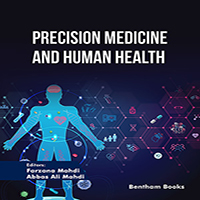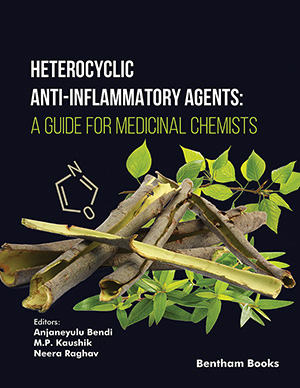Abstract
Berberine is an alkaloid found in plants. It has neuroprotective, anti-inflammatory and hypolipidemic activities. The research proves that it also strongly impacts carbohydrate metabolism. The compound also protects pancreatic β-cells and increases sensitivity to insulin in peripheral tissues via the induction of GLUT-1, GLUT-4 and insulin type 1 (Ins-1) receptors activity. It also stimulates glycolysis and leads to a decrease in insulin resistance by macrophages polarization, lipolytic processes induction and energy expenditure enhancement (by reducing body mass and limiting insulin resistance caused by obesity). In liver berberine inhibits FOX01, SREBP1 and ChREBP pathways, and HNF-4α (hepatocyte nuclear factor 4 alpha) mRNA that hinder gluconeogenesis processes. In the intestines it blocks α-glucosidase contributing to glucose absorption decrease. Its interference in intestinal flora reduces levels of monosaccharides and suppresses diabetes mellitus complications development.
Keywords: Berberine, alkaloid, diabetes mellitus, metabolism, nutrition, review.
Endocrine, Metabolic & Immune Disorders - Drug Targets
Title:Berberine in the Treatment of Diabetes Mellitus: A Review
Volume: 21 Issue: 8
Author(s): Aleksandra Baska*, Kamil Leis and Przemysław Gałązka
Affiliation:
- Faculty of Medicine, Collegium Medicum in Bydgoszcz, Nicolaus Copernicus University, ul. Jagiellonska 13/15, 85-090Bydgoszcz,Poland
Keywords: Berberine, alkaloid, diabetes mellitus, metabolism, nutrition, review.
Abstract: Berberine is an alkaloid found in plants. It has neuroprotective, anti-inflammatory and hypolipidemic activities. The research proves that it also strongly impacts carbohydrate metabolism. The compound also protects pancreatic β-cells and increases sensitivity to insulin in peripheral tissues via the induction of GLUT-1, GLUT-4 and insulin type 1 (Ins-1) receptors activity. It also stimulates glycolysis and leads to a decrease in insulin resistance by macrophages polarization, lipolytic processes induction and energy expenditure enhancement (by reducing body mass and limiting insulin resistance caused by obesity). In liver berberine inhibits FOX01, SREBP1 and ChREBP pathways, and HNF-4α (hepatocyte nuclear factor 4 alpha) mRNA that hinder gluconeogenesis processes. In the intestines it blocks α-glucosidase contributing to glucose absorption decrease. Its interference in intestinal flora reduces levels of monosaccharides and suppresses diabetes mellitus complications development.
Export Options
About this article
Cite this article as:
Baska Aleksandra*, Leis Kamil and Gałązka Przemysław , Berberine in the Treatment of Diabetes Mellitus: A Review, Endocrine, Metabolic & Immune Disorders - Drug Targets 2021; 21 (8) . https://dx.doi.org/10.2174/1568026620666201022144405
| DOI https://dx.doi.org/10.2174/1568026620666201022144405 |
Print ISSN 1871-5303 |
| Publisher Name Bentham Science Publisher |
Online ISSN 2212-3873 |
 140
140
- Author Guidelines
- Graphical Abstracts
- Fabricating and Stating False Information
- Research Misconduct
- Post Publication Discussions and Corrections
- Publishing Ethics and Rectitude
- Increase Visibility of Your Article
- Archiving Policies
- Peer Review Workflow
- Order Your Article Before Print
- Promote Your Article
- Manuscript Transfer Facility
- Editorial Policies
- Allegations from Whistleblowers
- Announcements
Related Articles
-
Role of Endothelin in Diabetic Retinopathy
Current Vascular Pharmacology Curcumin, an Active Constiuent of the Ancient Medicinal Herb Curcuma longa L.: Some Uses and the Establishment and Biological Basis of Medical Efficacy
CNS & Neurological Disorders - Drug Targets Mindfulness Practice for Glycemic Control: Could it be a New Strategy for an Old Problem? A Systematic Review and Meta-Analysis
Current Diabetes Reviews Subject Index
Current Drug Targets - Inflammation & Allergy Semi-Quantitative Ultrasonographic Evaluation of NAFLD
Current Pharmaceutical Design Nicotinamide Supplementation Protects Gestational Diabetic Rats by Reducing Oxidative Stress and Enhancing Immune Responses
Current Medicinal Chemistry RNAi in Clinical Studies
Current Medicinal Chemistry Ketogenic Diet Acts on Body Remodeling and MicroRNAs Expression Profile
MicroRNA The Role of Vasopressin in Affective Disorders: Possible Targets of Intervention
Central Nervous System Agents in Medicinal Chemistry Interrelationship between Chronic Kidney Disease and Risk of Cardiovascular Diseases
Cardiovascular & Hematological Agents in Medicinal Chemistry Clopidogrel High On-Treatment Platelet Reactivity in Patients with Carotid Artery Stenosis Undergoing Endarterectomy. A Pilot Study
Current Vascular Pharmacology Selective Glucocorticoid Receptor Ligands
Medicinal Chemistry Hyperandrogenism, Insulin Resistance and Hyperinsulinemia as Cardiovascular Risk Factors in Diabetes Mellitus
Current Diabetes Reviews Innate Immunity Alterations in Type 2 Diabetes Mellitus: Understanding Infection Susceptibility
Current Molecular Medicine Alkaloids as Promising Agents for the Management of Insulin Resistance: A Review
Current Pharmaceutical Design Phentermine and Topiramate Extended-Release for the Obesity: New Kids on the Block
Recent Patents on Cardiovascular Drug Discovery Role of Angiotensin II in the Development of Nephropathy and Podocytopathy of Diabetes
Current Diabetes Reviews Homocysteine and Non-Cardiac Vascular Disease
Current Pharmaceutical Design Kidney in Diabetes: from Organ Damage Target to Therapeutic Target
Current Drug Metabolism Protective Effect and Related Mechanism of Modified Danggui Buxue Decoction on Retinal Oxidative Damage in Mice based on Network Pharmacology
Current Pharmaceutical Design




























